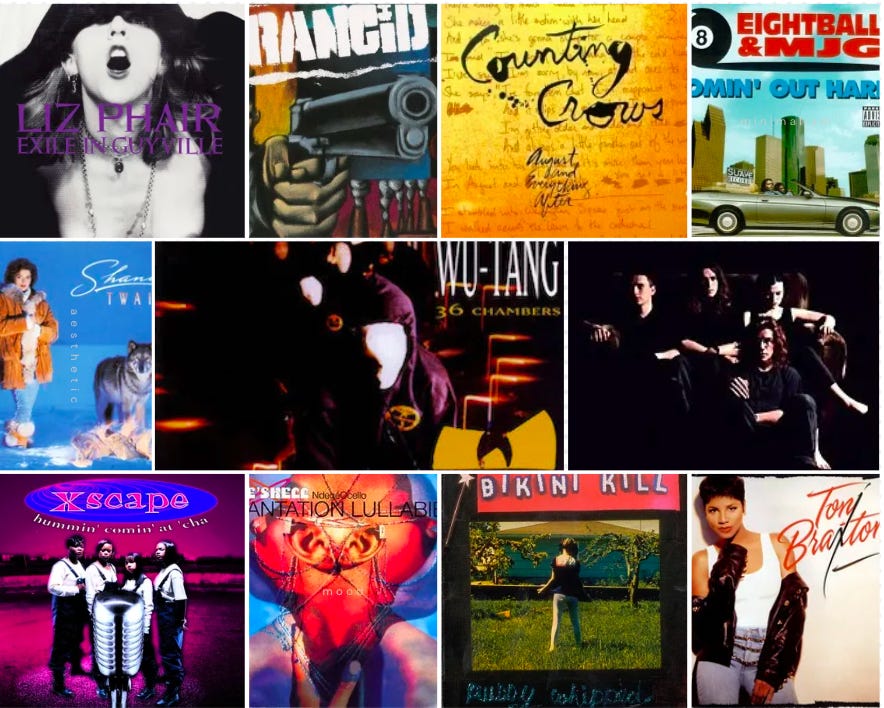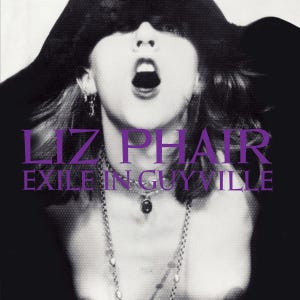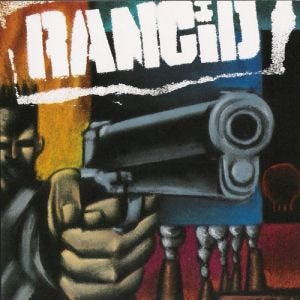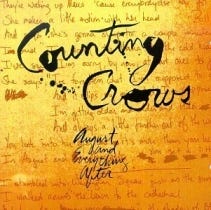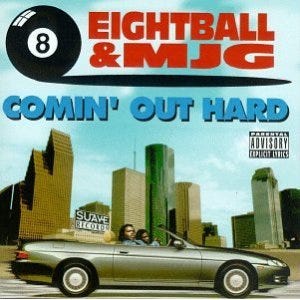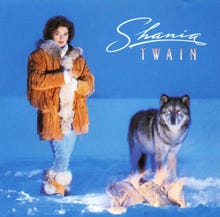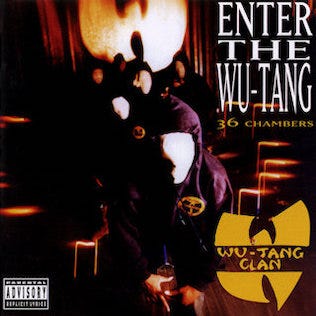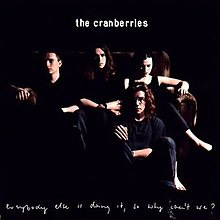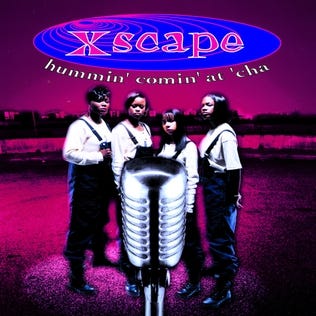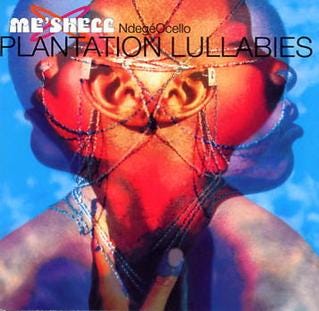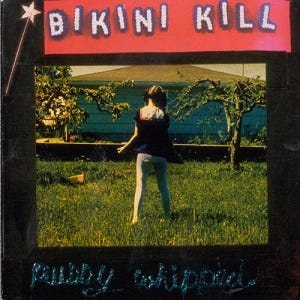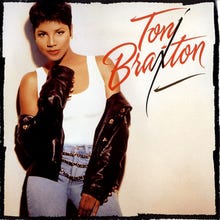Every year produces a great new class of recording artists, and 1993 was no exception. Here are a few quick takes, in no particular order, on 11 debut albums now celebrating their thirtieth anniversary. (Why eleven? Well, why not?) Some are canonical in their own right, some are mere preludes, but all of them show the richness of the musical conversation they entered into and how each artist would rewrite it going forward.
A couple of caveats: We already talked some about a few debuts – Sheryl Crow, Digable Planets, Gabrielle, the Roots, and RuPaul – on Monday, so they’re not here. Also, David will talk about other country firsts in an article coming soon, so look for them there. And I’m not counting solo debuts from artists who’d previously made their name in bands – so, for example, no Aimee Mann or Guru here, as much as I love both of them. And there are a few notable names missing here (for various reasons), although I’ve included some honorable mentions below. But there are plenty of others that deserve to be celebrated, so let us know in the comments if there are 1993 debuts you’re particularly fond of. And, as always, turn it up. - CH
Liz Phair - Exile in Guyville
Few rock ‘n’ roll debuts have announced an artistic identity so fully and compellingly as this ageless double album. Suffused with radio-ready hooks and frayed indie edges, the songs on Exile on Guyville express and expand on a central rock duality, expressed by Phair up top in “6’1”” – “I love my life, and I hated you.” The Stones comparison isn’t just in the title, or Phair’s stated goal to write a response to Exile on Main Street. It’s there in Phair’s chiming, chopping guitar, the pulsing backbeat of Brad Wood’s drums, and singing that alternates between seeming disaffection and open-wound vulnerability. There’s just as much Chrissie Hynde or Joni Mitchell echoing around here too, producing Phair’s singular sound and energy that creates a one-woman hit parade: the cascading pop of “Never Said Nothing,” the anthemic blues humor of “Fuck and Run,” the whirling stomp of “Johnny Sunshine,” and on and on. Even now, it sounds like nothing less than rock ‘n’ roll future, which – judging by the many artists who’ve followed in Phair’s example – turns out to be exactly what it was.
Rancid - Rancid
The big-hearted Bay Area punk-rockers would go on to make one of my very favorite albums of the ‘90s and another that’s firmly in the next tier. Their first album – recorded when the group was still a trio – signals how great they would be, a whirlwind of 16 songs in 34 minutes that disappear in the blink of a shouted chorus and scuzzy power chord. Vocalists Tim Armstrong and Matt Freeman (whose nimble bass guitar is the band’s secret weapon) trade lines and join in not-quite-harmonies in songs that honor their ska roots and always find their way to memorable hooks, regardless of how disheveled their surroundings. In comparison to later masterpieces, Rancid feels more like a warm-up. But there’s an undeniable rush in the quick-draw power of songs like the spitfire “Hyena” or strutting glam of “Outta My Mind.” From the opening shout of “Let’s go!” (the title of their next album), it’s full speed ahead.
Counting Crows - August and Everything After
A key counter-narrative, or perhaps complementary, storyline in ‘90s rock was the growth of an alternative alternative, the sustained resurgence of guitar-based pop-rock rooted in the 1960s and 1970s that diverged from both grunge and the glossy pop and metal that directly preceded it. The amiable Counting Crows existed at both the commercial center and critical margins of this collection of earnest, often earth-toned rockers. Their debut August and Everything After became a smash while earning some scathing reviews that pegged them as derivative (if agreeable) mush. I won’t make the case that they didn’t deserve a bit of that, but - particularly in hindsight - there’s a comforting, solid sincerity in Adam Duritz and company’s stylistic re-treads. There’s more country in it than I remember, and greater impact in the rush of “Rain King” or the album-opening epic sweep of “Round Here” than I’d given them credit for. Not that they need my help. Between “Round Here'“ the jangling yowl of this album’s “Mr. Jones,” and the later “A Long December,” they’re now additions to the classic-rock canon, having earned the place that those songs’ progenitors occupied before they moved one generation up in the pantheon. That’s not necessarily an upgrade, but I wouldn’t call it a downgrade either.
Eightball and MJG - Comin’ Out Hard
Along with Three 6 Mafia, Eightball and MJG were perhaps most important in establishing the sonic and storytelling parameters of Memphis hip-hop as it traveled from the city to the world in the ninetees. The pride of Orange Mound, the duo’s block-rocking debut sets the template, pairing rumblins bass-and-boom tracks with lyrics that rooted the life-and-crimes stories with local specificity and a narrative style drawn equally from blues reality and cinematic fantasy. Befitting their real and figurative journey between Memphis and Houston, the group drew from each city’s respective (and connected) sonic histories to craft the kind of spare arrangements that sounded perfect in a neighborhood skating rink or out of a car’s well-calibrated system. On the singsong flow of “9 Little Millimeta Boys” or the brooding “Mr. Big,” the duo use these sparse arrangements to lay out narratives that juxtapose the over-the-top with the fine-grain. But they also call out to other parts of the continuum. There’s the piercing guitar on “The First Episode,” for example, or the plush funk luxury of “Pimps.” Best of all, perhaps, is the title track’s sampled gospel chorus that invokes the sacred-music traditions of their home(s) and the unsettled spirit that lived just below even the duo’s most confident-sounding narratives.
Shania Twain - Shania Twain
If there’s anything I can say about Shania Twain’s first album, it’s how much it makes me value Shania Twain’s subsequent albums. The core elements are there – the warm vocals, the pop-ready poise, the occasional rock guitar, the larger balance of tradition and crossover – but they’re framed within a relatively ho-hum set of standard ‘90s-country tricks that obscure much of what made Twain such a great record-maker (not to mention a superstar) later in the decade. She’s too good for it to be anywhere near bad, of course, and sometimes – the percolating “What Made You Say That,” the strutting come-on of “God Ain’t Gonna Getcha For That” – it works well. But this pales in comparison to the crash-boom-twang that she and Mutt Lange created on records to come, when the whole world couldn’t help but come on over.
Wu-Tang Clan - Enter the Wu-Tang (36 Chambers)
Bring the motherfuckin’ ruckus. Enter the 36 Chambers comes out spitting and never lets up, as the artistic collective from the temples of Shaolin (by way of Staten Island) offers a block-rocking origin story. Every track features a series of relentless verses from Method Man, Ol’ Dirty Bastard, Ghostface Killah, and the rest, who circle each other in a swarming style that allows each to shine even as the rest of the group crowds the cipher waiting to drop knowledge of their own. Even at its deepest or most raucous, though, it’s called to order by the mystery stew of The RZA’s rich productions, with massive drums supporting expert soul and jazz samples. It’s a tower of power, barely stopping for breath as the crew hurtles through cuts like “Shame on a N*gga” or “Protect Ya Neck.” Perhaps the album’s greatest accomplishment – other than its no-skips consistency – is how the Wu-Tang Clan both establishes the distinctive styles of so many MCs while also transcending pure individualism to achieve a larger collective identity. (Although the solo star turn on “Method Man” is a highlight.) Such mythology adds extra resonance to the braggadocio of “Wu-Tang Clan Ain’t Nothin’ To F’ Wit” or the blues of “C.R.E.A.M,” while also making the whole thing even more pleasurable. Who’s your favorite Wu-Tang member? The correct answer is yes.
The Cranberries - Everybody Else is Doing It, So Why Can’t We?
Dolores O’Riordan is gone now, but her indelible voice still echoes. It echoes in the enduring power of “Linger” or “Dreams,” two very different hits from this album that each capture something about the Cranberries’ gifts for intimate epics. It echoes in the rest of the album, which covers the waterfront of pop, folk, and rock on enchanting tracks like “Pretty” or “Wanted.” And it echoes in a new generation who’ve followed O’Riordan’s model of singing and songwriting that makes equal room for almost-whispered secrets and wide-open devotionals. Artists keep asking why, if O’Riordan and the Cranberries were doing it, then why can’t we? And they find no justifiable answer.
Xscape - Hummin’ Comin’ At ‘Cha
Xscape’s run at the top was brief, perhaps, but it was glorious. Their 1993 debut is a crucial early document of the developing Atlanta R&B/hip-hop scene, featuring an early production by Organized Noize and the supervision of Jermaine Dupri, textures that run from New Jack Swing to subtle G-Funk to scratchy boom-bap and beyond. Over all of this, the quartet – sometimes individually, and sometimes in glorious unison or harmony – swaggers, swoons, and snaps through endlessly infectious tracks like the jumping “Let Me Know” and organ-driven ballad “Understanding.” Xscape remains an important part of a ‘90s story that begins with En Vogue, continues with fellow Atlantans TLC, and ends with Destiny’s Child, and counts many other groups of Black women artists who rewrote and remixed the pop, R&B, and hip-hop sounds of a new era in ways that shifted the center of everything. Just like Black women artists always have.
Meshell Ndegeocello - Plantation Lullabies
Her first album makes clear that Meshell Ndegeocello has always sounded both like an iconoclastic creator and an ambassador for multiple intersecting legacies, musical or otherwise. As she promises early on, she digs old soul records throughout Plantation Lullabies – even dropping references to Curtis Mayfield in “Shoot’n Up and Get’n High” – and engages with jazz traditions too, but never lets this embrace of the past overwhelming her engagement with the sonic present. Hip-hop is both a key musical element – from arrangements to Ndegocello’s rhymes – and interlocutor, as Ndegeocello critiques gender and image politics within the context of larger (white) (straight) (male) systemic oppression. She celebrates Black love, whether of oneself or one’s partner (or, in the case of hit “If That’s Your Boyfriend (He Wasn’t Last Night),” someone else’s), and calls for larger community reinventions. The beauty of Plantation Lullabies is multifaceted, but it’s always driven by Ndegeocello’s bass, a constant response that breaks through even the most crowded arrangements. In that way, it’s a fitting symbol for Ndegeocello’s career more broadly, a continuing brilliant run that began its interdimensional travels here.
Bikini Kill - Pussy Whipped
30 years on, Pussy Whipped feels like a necessary riot. A righteous squall of guitars and vocals, the songs on the first album from Kathleen Hanna’s riot-grrrl shock troops roars through its 25 minutes with astonishing purpose and energy. Hanna’s voice remains a revelation, alternating between guttural moans, ferocious shouts, and soaring clarity on songs like “Alien She” and “Lil Red” that give no quarter to misogynist assholes while also sending them straight to the back of the conversation and the party. “Rebel Girl” has become the anthem it deserves to be, with Hanna celebrating a revolutionary neighbor with love and admiration but none of the condescending sleaze of similar-themed songs by her male rock counterparts. And, just as throughout the album, Tobi Vail’s drums drive the girls to the front of the mix and the world being built inside it. Rock on.
Toni Braxton - Toni Braxton
Backed by the LaFace hit machine and armed with a startling alto, Braxton’s debut is a fully assured set of songs that announce the performer within the rich ‘90s-R&B conversation. “Another Sad Love Song” does to the listener what Braxton says it’s doing to her, as the insistent groove supports her hushed earworm frustrations. That and the longing ballad “Breathe Again” were the biggest hits from Braxton’s deep dig into love’s slings and arrows, an ache audible too in the easy sway of “Seven Whole Days,” fed-up pulse of “Love Shoulda Brought You Home Last Night,” or “Love Affair,” which rejects the pleasure and pain of a temporary fling and reminds the Naughty By Nature guys that she doesn’t want to deal with either being or dealing with “O.P.P.” But – in the best fashion of blues/R&B/soulwomen – Braxton presents this less as scolding and more like well-earned skepticism. Braxton still finds room for grown-up pleasure and joy, too, whether that’s the date-night anthem “Candlelight” or late-era New Jack Swing of “Spending My Time With You.” She’d get funkier and even deeper blue, but her debut sets out the mission with skill and precision.
Honorable mentions from the Class of 1993:
Radiohead - Pablo Honey
Mobb Deep - Juvenile Hell
Beck - Golden Feelings
E-40 - Federal
Belly - Star
The Coup - Kill My Landlord
Onyx - Bacdafucup
Snoop Doggy Dogg - Doggystyle
If you like what you’re reading here, please think of subscribing to No Fences Review! It’s free for now, although we will be adding a paid tier with exclusive content soon. Also, if you’d like to support our work now, you can hit the blue “Pledge” button on the top-right of your screen to pledge your support now, at either monthly, yearly, or founding-member rates. You’ll be billed when we add the paid option. Thanks!





